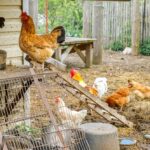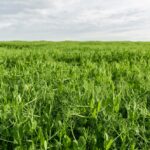As climate change continues to alter weather patterns and threaten agricultural productivity, South African farmers are under increasing pressure to adapt their practices. Prolonged droughts, heatwaves, and erratic rainfall are becoming more common, making sustainable farming more crucial than ever. By adopting environmentally friendly and climate-resilient strategies, farmers can protect their livelihoods while ensuring long-term food security. Here are ten effective ways to farm sustainably in South Africa’s changing climate.
- Adopt Conservation Agriculture
Conservation agriculture focuses on minimal soil disturbance, permanent soil cover, and crop rotation. By reducing tillage, farmers protect soil structure, conserve moisture, and boost long-term yields. This method also helps prevent erosion and enhances the resilience of the land to climate shocks. - Use Drought-Resistant Crops
Planting drought-tolerant crop varieties, such as sorghum, millet, cowpeas, and climate-adapted maize, is essential in regions affected by reduced rainfall. These crops require less water and can thrive in hotter, drier conditions, helping farmers maintain productivity under climate stress. - Implement Efficient Water Management
Water conservation techniques like drip irrigation, mulching, and rainwater harvesting allow farmers to maximize water use efficiency. Drip systems, in particular, deliver water directly to plant roots, reducing evaporation and ensuring crops receive just the right amount of moisture. - Improve Soil Health Naturally
Healthy soil retains water better and supports plant resilience. Farmers can enrich soil through composting, green manures, and the use of cover crops. Organic matter increases fertility and supports microbial activity that’s vital for strong plant growth and disease resistance. - Rotate Crops and Diversify Farming
Crop rotation breaks pest and disease cycles and improves soil nutrients. Diversifying with vegetables, legumes, or livestock helps spread risk and improves food security. Mixed farming systems are more resilient to market and climate fluctuations. - Integrate Agroforestry Practices
Agroforestry—the combination of trees and crops or livestock—provides shade, windbreaks, and improves soil fertility through leaf litter and root systems. Indigenous trees like moringa and acacia offer ecological benefits while producing additional food or income sources. - Utilise Renewable Energy
Solar-powered irrigation pumps, water heaters, and electric fences reduce dependency on fossil fuels. Renewable energy solutions are more sustainable, reduce greenhouse gas emissions, and often lower operating costs in the long term. - Use Precision Agriculture Tools
Modern technologies such as GPS mapping, soil sensors, and mobile farming apps enable farmers to make data-driven decisions. These tools improve input efficiency, reduce waste, and allow farmers to respond quickly to environmental changes. - Protect and Manage Natural Resources
Maintaining wetlands, conserving indigenous vegetation, and preventing overgrazing are key to ecosystem health. Responsible land use ensures long-term productivity and reduces the impact of extreme weather events like floods and droughts. - Engage in Continuous Learning and Collaboration
Sustainable farming requires ongoing education. Farmers can benefit from workshops, extension services, and local cooperatives that share climate-smart techniques. Peer networks and mentorship help communities adapt faster and with more success.
Farming in South Africa’s shifting climate is undeniably challenging, but it also presents opportunities to innovate and lead in sustainable agriculture. By embracing these ten strategies, farmers can build more resilient operations that protect the land, sustain food production, and support rural livelihoods for generations to come.
Join 'Farmers Mag' WhatsApp Channel
Get the latest Farming news and tips delivered straight to your WhatsApp
CLICK HERE TO JOIN






